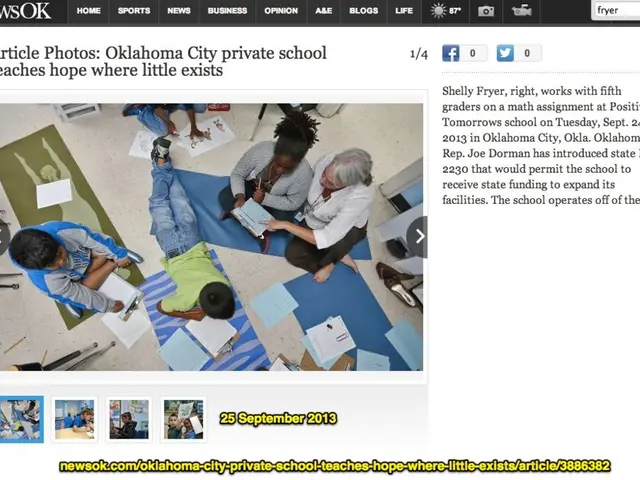Summer Employment Opportunities for Teachers Proposed by Akim Kostanay Met with Resistance
In Kostanay, the city's mayor, Marat Zhundubayev, has sparked outrage with his proposal to have teachers patrol water bodies. The proposal came after a tragic drowning incident involving a schoolboy. However, the idea isn't sitting well with educators, who feel it's unfair to ask them to spend their vacations patrolling in boats.
The swimming season in Kostanay started on a somber note - a ninth-grader drowned. In response, the city head convened an emergency meeting and urged teachers to take up patrolling duties at unauthorized beaches during their holidays.
Indeed, some question why teachers should be saddled with such responsibilities. But, in the absence of adequate police or emergency services, Zhundubayev reasons that it's a community responsibility. Teachers, he suggests, can use their 40 days of vacation for this purpose and still receive their salary.
Yet, the city head's proposition has left teachers perplexed. After all, it's parents who are responsible for their children's safety during vacations. Moreover, the education department clarified that teachers are not obliged to undertake such duties.
The head of state has spoken against involving teachers in non-professional duties. The region's education department has assured that teachers' rights will be respected, and they won't be forced into unfamiliar roles.
Regional deputies have also expressed concerns about the outdated practice of burdening teachers with extracurricular duties, and they're skeptical about the idea of teachers patrolling rivers and lakes.
Meanwhile, inside schools, students are taught water safety rules, first aid, and are even taken on excursions to potentially dangerous water bodies.
Extra-curricular activities, especially those outside school premises, are not the responsibility of teachers, according to the main expert of the Committee for the Protection of Children's Rights, Albina Zalmuhanova. However, school directors and their deputies are held accountable for bullying and other violations that occur on school grounds.
Related Reads:
- Planning your summer break: what teachers in Kazakhstan can expect
- No widespread exploitation of teachers in Kazakhstan, but some regions are
The idea of teachers patrolling water bodies raises several questions. Legally, it involves questions about jurisdiction and authority, liability and safety, and regulatory compliance. Ethically, it questions the appropriateness of teacher roles and potential resource allocation.
Possible solutions might include providing teachers with appropriate training and equipment, engaging the community, and establishing a clear legal framework for such activities. Such a framework would give a legal mandate to teachers' roles and responsibilities in patrolling water bodies. Without specific details on the initiative, these points provide a general framework for considering the legal and ethical implications.
The proposal for teachers to patrol water bodies in Kostanay, amidst concerns over safety, raises questions about legal jurisdiction, ethical appropriateness, and resource allocation in education-and-self-development and politics. Potential solutions could involve providing teachers with necessary training and equipment, engaging the wider community, and devising a clear legal framework for these duties, ensuring their roles are defined and safe. This discussion is particularly relevant in the context of general news and the ongoing debates about teachers' responsibilities beyond their traditional roles.







